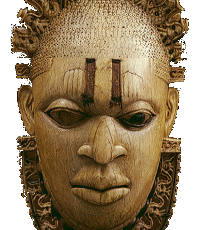Black Athena
Black Athena: The Afroasiatic Roots of Classical Civilization is the name of a book, in three volumes, by the historian Martin Bernal, which gave rise to a major controversy when it first appeared in 1987. Bernal’s thesis was that much of Greek culture had been imported from Greece’s African and Asian neighbors, especially from the Phoenicians and Pharaonic Egypt. His interpretation was controversial since ancient Greece often has been identified as the origin of everything we think of as “European.” If it turns out that the Greeks had borrowed most, or much, of their culture from Africa and the Middle East, Europeans would no longer be who they think they are.
Bernal himself was a scholar of contemporary China, not Greece, and it was easy for specialists to point to mistakes in his analysis. For that reason, the Black Athena thesis has often been rejected. However, there is no disputing the fact that Greece borrowed heavily from its neighbors, from Egypt in particular. The ancient Greeks themselves readily admitted as much. More generally, it might be a mistake to think of “Greece” as a discrete civilization which easily can be distinguished from the societies that surrounded it. For one thing, the people we think of as Greeks were seafarers who interacted closely with everyone else around the eastern Mediterranean. Greek and non-Greek societies were not as distinct as we often believe.
It was only in the nineteenth-century that German scholars in particular started thinking of Greece as the origin of their own society. And the choice of Greece was, at least in part, a consequence of the fact that the French – Germany’s enemies in a series of wars – often retraced their own history to the Romans. In fact, the Black Athena debate may say more about us than it does about the ancients. The 1980s and 90s was a time when various “culture wars” were fought at American universities in particular. Members of minority groups often complained that the academic cannon contained too many “dead, white, males.” Calling Athena “black” was a way to turn the tables on the academic establishment.
External links
- Black Athena, Ten Years After
- Cheikh Anta Diop, The African origin of civilization: myth or reality?
- John R. Lenz, "Ancient Histories and Modern Humanities"
- Journal of the History of Ideas: "Proof and Persuasion in Black Athena: The Case of K. O. Müller"
- Martin Bernal reviews Mary Lefkowitz, Not Out of Africa
- Martin Bernal, "Black Athena: The Afroasiatic Roots of Classical Civilization"
- Planet of the Greeks: The Great Time-Warp of History

